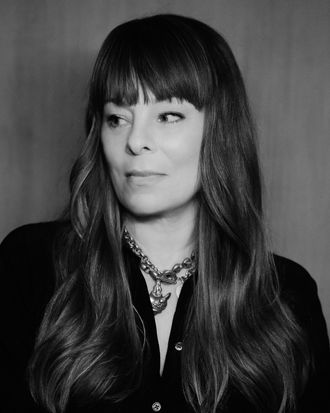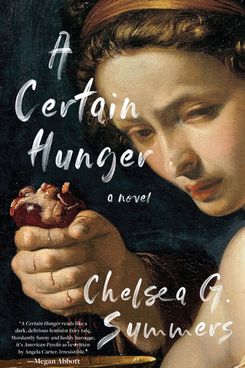
TikTok is cacophonous. Creators on the platform chime in on sea shanties, protest pink sauce, and make flowcharts of viral lesbian breakups; it’s noisy and frenetic, fueled by earworms and chaotic visuals. TikTok doesn’t seem like it would be a hospitable place for readers and writers, since reading and writing are activities defined by quiet and calm. Books rarely make a sound until they’re hurled against a wall.
But that thinking, I have learned, is wrong. BookTok makes glorious bookish noise, and it’s arguably the best thing that’s happened for readers — and writers — since the iPad. BookTok, the bookish corner of TikTok, invites book lovers to showcase their literary passions. Creators review books and flaunt their TBRs, those glossy book piles displayed with the eroticism of a new crush. BookTokers unwrap their book hauls and reveal the contents of their Amazon packages when they’ve been #bookfairied, or sent books from their Amazon wish list. BookTok gives people a space to covet ARCs like sneakerheads covet Off-White’s slime-green Air Force 1s, or to take deep, intellectual dives into the meaning of cover art.
BookTok makes loving books exciting, in short, and I’m here for it.
That said, I appreciate BookTok’s unselfconscious enthusiasm for reasons beyond finding a spiritual kinship; I love BookTok because BookTok is selling the hell out of my book A Certain Hunger, at least as far as my publishers can discern. It’s a little mysterious — we live in an age awash in raw data, but three great numerical mysteries persevere:
1. Exactly how many copies of any given book sell over the course of a week
2. How TikTok algorithms work
3. To what extent BookTok drives the sale of specific books
No one really knows, and that’s part of BookTok’s riotous charm.
I can tell you for certain that A Certain Hunger was published the first week of December 2020, and almost two years after hitting the shelves, it’s going into its fourth printing. Released by Unnamed Press, a small indie publisher, my novel got the kind of reviews that debut novelists dream about. But getting great reviews from legacy media doesn’t ensure that your debut novel is going to sell — BookTok does. BookTok began championing my novel shortly after its paperback release — videos hashtagged #acertainhunger currently have more than 4.6 million views — and the book continues to sell upwards of 500 copies a week. I believe those things are connected.
I never expected A Certain Hunger, the story of a menopausal food critic who kills and eats her ex-lovers, to be popular with teens or 20-somethings, TikTok’s largest demographics. Furthermore, I couldn’t have foreseen my novel’s TikTok stardom when I began writing in October of 2011, almost five years before TikTok launched. Neither BookTok nor its beloved “unhinged woman” genre crossed my mind as I wrote, revised, and copyedited my book. I merely did the writer thing and wrote the book that I, a middle-age angry white woman, wanted to see in the world. It turns out that many youngs similarly like their prose purple, their sex graphic, and their murders bloody.
Many BookTok videos are wildly positive about my novel in TikTok’s quirky, coded ways — the sound clip of Lady Gaga saying, “I don’t believe in the glorification of murder; I do believe in the empowerment of women” makes for effective shorthand as an explainer for my book. However, other creators are decidedly tepid, and still others unapologetically hate my book. These diss-track videos rack up the most views because nothing delivers that sweet, sweet dopamine hit like a hot-take dunk. People who hate my novel seem to hate its style, which, you know, fine, or they seem to hate it because the publishing industry is unfairly skewed toward white women, a criticism I share. Still others hate it because they don’t understand it, which, whatever. I didn’t write it for them, and in a weird Hegelian dialectic, the presence of haters highlights the book’s many stans.
Turning social-media clout into sales is a notoriously tricky business, and TikTok’s algorithm is hard to harness for capitalism. I have seen one spon-con BookTok post for A Certain Hunger, paid for by Audible, which released my book on audio in 2019. This video’s creator patently phoned in her post. She could not have been more disengaged had she taken a benzo before filming. Her antipathy was so palpable that I can’t imagine that her video generated a single sale, bless her anarchic TikTok heart.
The thing that marketing teams can’t fully grok is that TikTok interest is organic, growing like a mushroom, sending out spores that germinate and thread through existing cultural ephemera. My book has been embraced by the “rage girlies,” the “unhinged women” girlies, the “women’s wrongs” girlies, and gender-free humans who just like a little horror as a treat. I’m all right with that — in fact, I went live on TikTok for one creator’s feminine-rage book club in October. The current cachet of cannibalism, driven by movies like Fresh and Bones & All, as well as by television shows like Yellowjackets, has also undoubtedly helped my BookTok fame. Pro tip: If you can write a novel that drops at the height of a cultural moment, do that.
I may have begun my novel with the keening need to vent my spleen on publishing and the patriarchy, but I’m delighted that my book has hit with readers I could never have envisioned. You never know who’s going to find your writing, be they the Gaga meme-ers, aesthetic dreamers, or BookTok creators itching to lip-sync to that “cool girl” monologue from Gone Girl. BookTok lands squarely in the box of chaotic good, even if you, like me, prefer the page to the forward-facing camera.


